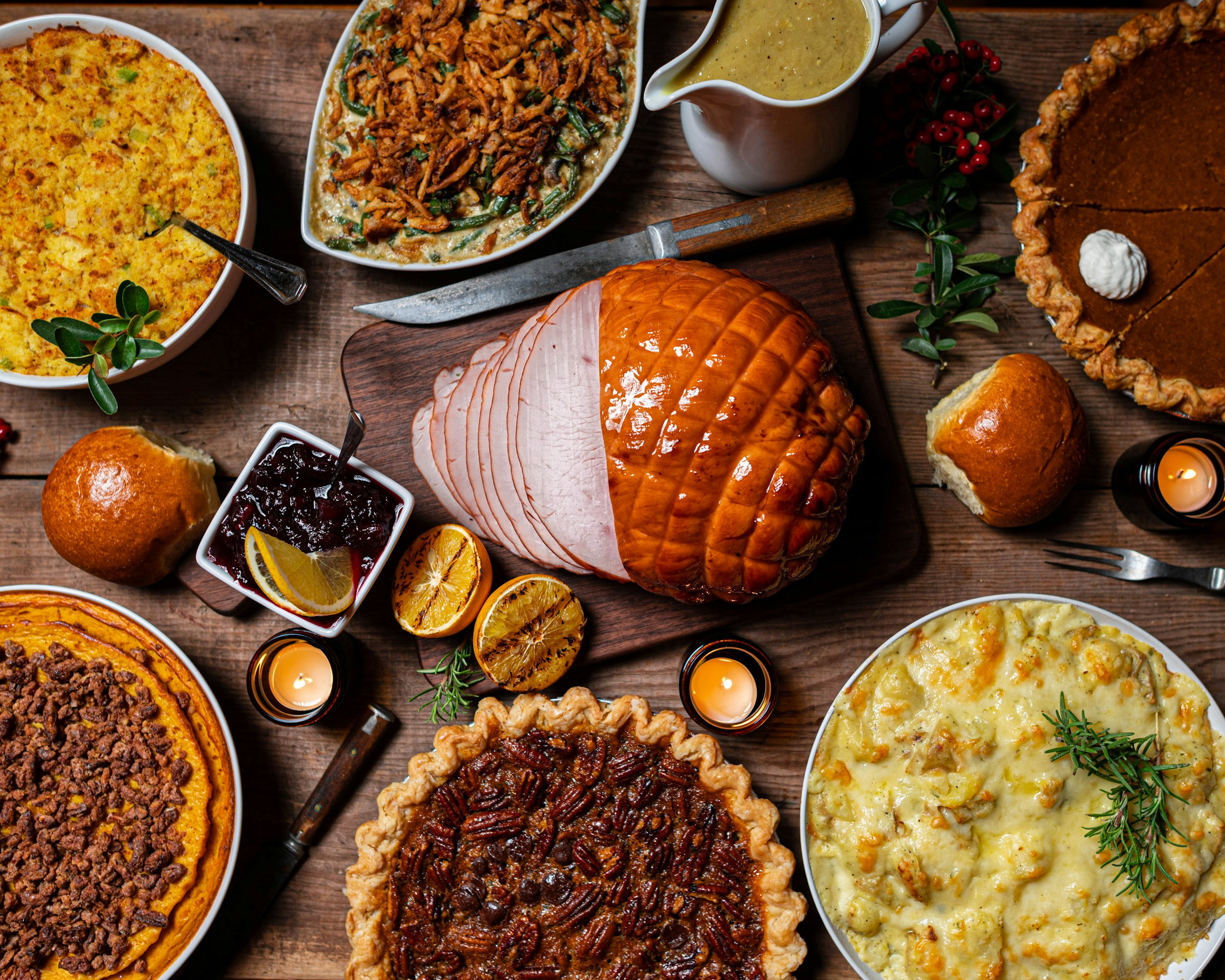
As the autumn leaves fall gently from the trees and the crisp air of winter begins to creep in, we find ourselves surrounded by an overwhelming sense of gratitude during the season of Thanksgiving. This annual holiday, celebrated widely in North America, serves as a reminder for us to pause and reflect on the blessings in our lives. In this blog post, we will discuss the concept of gratitude and mindfulness, exploring their connection during the Thanksgiving season.
Gratitude, defined as the quality of being thankful; a readiness to show appreciation for and to return kindness, is a powerful emotion that can significantly improve our mental and emotional well being. Research shows that practicing gratitude regularly can lead to increased happiness, better relationships, improved physical health, and even a stronger immune system (1). This is particularly relevant during the holiday season, as we are often surrounded by loved ones and an abundance of delicious food and warm memories.
Mindfulness, on the other hand, refers to the practice of being fully present in the moment and observing our thoughts, feelings, and bodily sensations without judgment. Mindfulness practices like meditation and deep breathing can help us reduce stress, improve focus, and cultivate a deeper sense of self-awareness (2). By combining the emotions of gratitude with the mindful practice of being present, we can create a more meaningful and fulfilling Thanksgiving experience.
Cover photo by Jed Owen
The Power of Gratitude During Thanksgiving
As we gather around the table during Thanksgiving with our loved ones, it is essential to take a moment to reflect on the many blessings in our lives. This season offers us an opportunity to express our gratitude to those who have positively impacted our lives and to cultivate a deeper appreciation for all that we have.
One of the primary ways to practice gratitude is by sharing stories and memories with one another. These narratives serve as reminders of the connections that bind us together and help us appreciate the moments that have shaped our lives. Additionally, taking the time to write down what we are grateful for in a journal or sharing our thanksgivings aloud can help reinforce our commitment to practicing gratitude daily.
Furthermore, expressing gratitude to those around us can help strengthen our relationships and foster deeper connections. By acknowledging and appreciating the efforts of others, we not only create a positive atmosphere but also encourage a culture of kindness and appreciation within our communities (3).
The Role of Mindfulness in Practicing Gratitude
Mindfulness plays an essential role in helping us fully embrace the emotions of gratitude during Thanksgiving. By practicing mindfulness, we can become more aware of our thoughts and feelings, allowing us to focus on the present moment and appreciate the blessings around us.
One way to practice mindfulness during Thanksgiving is by engaging all our senses while enjoying a delicious meal. Savoring each bite, appreciating the textures, flavors, and aromas can help us fully immerse ourselves in the experience and express gratitude for the abundance that surrounds us (4). Additionally, taking short mindfulness breaks throughout the day, such as deep breathing exercises or body scans, can help reduce stress and promote a greater sense of self-awareness.
Moreover, practicing mindfulness during Thanksgiving can help us cultivate a deeper appreciation for the simple things in life. By focusing on the present moment and observing the world around us without judgment, we can discover new sources of gratitude that might have otherwise gone unnoticed (5).
Overcoming Gratitude Challenges During Thanksgiving
Despite the many benefits of practicing gratitude during Thanksgiving, it is essential to acknowledge the challenges that may arise. For some, this season can be a particularly difficult time due to the loss of loved ones, financial difficulties or feelings of isolation. In such cases, it is crucial to remember that even in the midst of hardship, there are still things to be grateful for.
One way to overcome gratitude challenges during Thanksgiving is by focusing on the intangible blessings in our lives, such as our health, relationships, and personal growth. Additionally, expressing gratitude to ourselves can help boost self-esteem and promote positive self-talk (6). Furthermore, engaging in acts of kindness towards others can help shift our focus away from our own struggles and create a sense of connection and community.
Cultivating a Year-Round Practice of Gratitude and Mindfulness
As the Thanksgiving season comes to an end, it is essential to remember that the practice of gratitude and mindfulness can be carried forward throughout the year. By making a conscious effort to express gratitude daily and practicing mindfulness regularly, we can improve our overall well being and create a more fulfilling life experience.
There are numerous ways to cultivate a year-round practice of gratitude and mindfulness. Some simple ideas include keeping a gratitude journal, engaging in daily acts of kindness, practicing mindfulness meditation, or setting aside time each day for quiet reflection (7). By incorporating these practices into our daily routines, we can help foster a more mindful and appreciative attitude towards life.
Conclusion
In conclusion, the practice of gratitude during Thanksgiving, combined with the mindfulness of being present in the moment, can create a more meaningful and fulfilling holiday experience. By reflecting on the blessings in our lives, expressing gratitude to those around us, and engaging in mindfulness practices, we can improve our mental and emotional well being while strengthening our relationships and connections within our communities.
However, it is essential to remember that the practice of gratitude and mindfulness should not be limited to the holiday season alone. By making a conscious effort to express gratitude daily and practice mindfulness regularly, we can create a more fulfilling life experience throughout the year. So as you go forth from this Thanksgiving season, take with you the spirit of gratitude and mindfulness, and let it guide you on your journey towards a more meaningful and joyful life.
References
1. Emmons, R. A., & McCullough, M. E. (2003). Counting blessings versus burdens: Experimental studies of gratitude and subjective well-being. Journal of Personality and Social Psychology, 84(2), 377–389.
2. Kabat-Zinn, J. (1990). Full catastrophe living: Using the wisdom of your body and mind to face stress, pain, and illness. Delta.
3. Seligman, M. E. P., Steen, R. H., Park, N., & Peterson, C. (2005). Positive psychology progress: Empirical validation of interventions. American Psychologist, 60(6), 678–686.
4. Rolls, B. J. (1999). The neuroscience of pleasure and the regulation of appetite. Neuron, 24(3 Pt 1), 545–553.
5. Bishop, S., & Creswell, J. (2004). Mindfulness: A proposed operational definition. Clinical psychology in review, 21(6), 947–962.
6. Seligman, M. E. P. (2002). Authentic happiness: Using the new positive psychology to realize your potential for lasting fulfillment. Free Press.
7. Kabat-Zinn, J. (1993). Full catastrophe living: Using the wisdom of your body and mind to face stress, pain, and illness. Delta.


